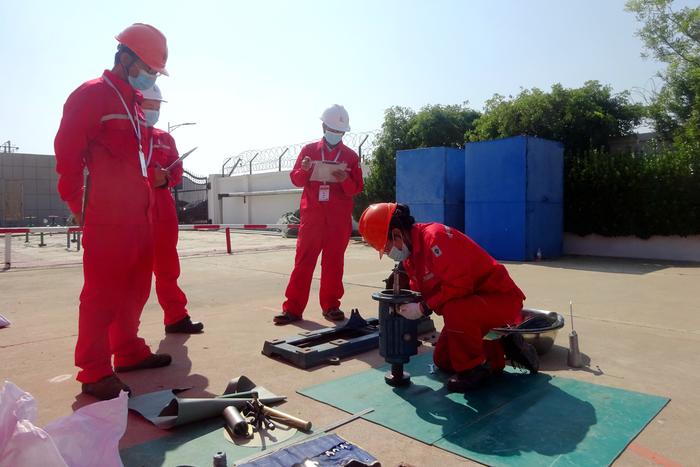|
| 2020-07-31 来源: 中国石化新闻网 |
| 石化新闻 |
|
中国石化新闻网讯 据今日油价网站7月29日消息 沙特今年第二季度出现290亿美元的赤字,原因是油价和石油需求持续低迷,影响了收入。 路透社报道,沙特4-6月的石油收入同比下降45%,总预算收入较上年同期下降49%。 沙特已经采取了一些紧缩措施,试图控制公共开支,减轻石油危机对其经济的影响,但似乎还需要更多的措施。 路透社援引阿布扎比商业银行首席经济学家莫妮卡·马利克的话报道称:“削减开支对于遏制赤字至关重要。政府的积极姿态已经反映在4月份宣布的紧缩措施中。然而,这将抑制复苏前景。” 今年到目前为止,沙特政府已经宣布,通过部分削减一些对社会和经济影响最小的项目,将2020年预算支出削减132亿美元,同时将增值税从5%提高三倍至15%,并暂停对占沙特就业人口大多数的所有沙特公务员的所谓生活费津贴。 这些紧缩措施的问题在于,一旦危机结束,它们可能会减缓经济复苏的速度。而事实上,沙特也计划借款度过最糟糕的时期,这也没有帮助,因为贷款需要偿还。目前,人们对沙特债务兴趣浓厚,但如果我们确实已经过了石油需求的峰值,这种情况可能很快就会改变。今年以来,利雅得已在国际和国内市场借贷了近130亿美元。 国际货币基金组织预计沙特经济今年将收缩6.8%。沙特自己也认为该数字相对悲观。 王磊 摘译自 今日油价 原文如下: Saudi Arabia Books $29-Bln Deficit In Q2 Saudi Arabia booked a deficit of $29 billion for the second quarter of the year because of the continued slump in oil prices and oil demand, which affected revenues. Reuters reports the Kingdom’s oil revenues for April to June were down 45 percent on the year, with total budget revenues down 49 percent from a year earlier. Saudi Arabia has taken some austerity steps already in an attempt to rein in public spending and mitigate the impact of the oil crisis on its economy, but it seems more would be needed. “A pullback in spending is essential for containing the deficit,” Reuters quoted Monica Malik, chief economist at Abu Dhabi Commercial Bank, as saying. “The proactive stance of the government was already reflected in the austerity measures announced in April. However, these will dampen the recovery outlook.” So far this year the Saudi government has announced a cut in 2020 budget expenditures of $13.2 billion through “a partial reduction in some items with the least social and economic impact,” along with a tripling of value-added tax to 15 percent from 5 percent and a suspension of the so-called cost-of-living allowances for all Saudi public servants, who are the majority of Saudis in employment. The problem with these austerity measures is that they may slow down the economy’s recovery once the crisis is over. And the fact that the Kingdom also plans to borrow a lot to get through the worst of it is not helping, either, because loans need to be repaid. For now, there is a strong interest in Saudi debt, but if we are indeed past peak oil demand, this may change before long. So far this year, Riyadh has borrowed almost $13 billion on the international and domestic markets. The IMF expects Saudi Arabia’s economy to contract by 6.8 percent this year. The Kingdom itself has called the figure pessimistic.
|








